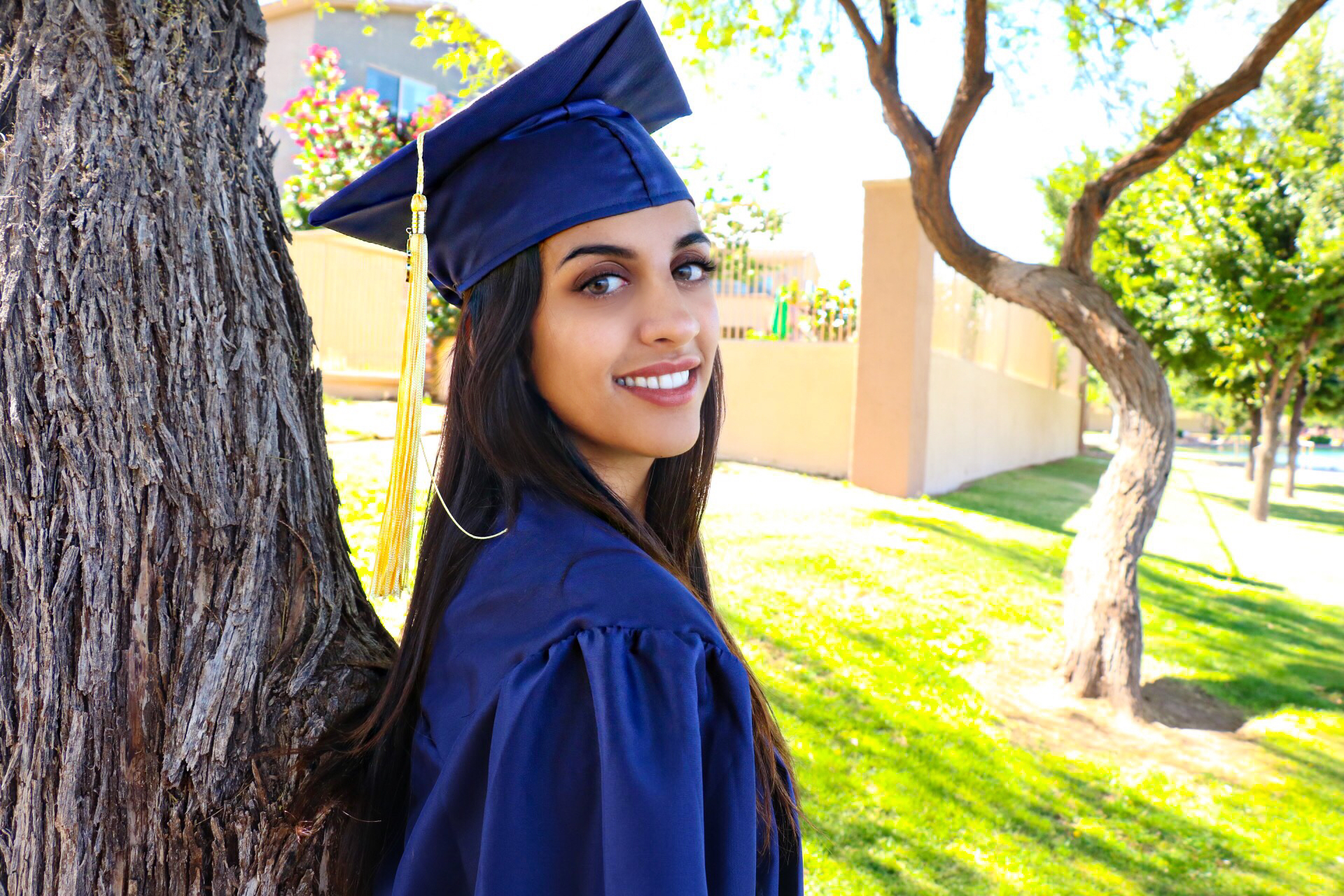Urban planning graduate hopes to make hometown more sustainable

Hanan Alhashmi looks forward to returning home to the United Arab Emirates, where she hopes to use her education to help her hometown.
Editor’s note: This is part of a series of profiles for fall 2018 commencement. Read about more graduates.
With a hometown known for a booming urban center, it is not much of a surprise that Hanan Alhashmi decided to pursue an education that could benefit its development. Originally from Dubai, United Arab Emirates, Alhashmi will be graduating this December with a Master of Urban and Environmental Planning degree from Arizona State University’s School of Geographical Sciences and Urban Planning.
“I want to be an environmental planning consultant and work with all kinds of stakeholders in the UAE to aid in the country’s process of shifting towards more sustainable development,” said Alhashmi. “I would like to specifically focus on how to secure development whilst conserving valuable resources such as groundwater.”
As urban areas continue to grow around the world, Alhashmi recognizes the need for urban planners to help ensure that cities can continue to function and accommodate their growing populations — no matter where they are in the world.
“I definitely recommend taking this program if you are interested in international development or in planning to make an impact on a more macro-scale,” she said.
Question: What was your “aha” moment, when you realized you wanted to study the field you majored in?
Answer: I believe that moment was when I first saw the program and learned more about it. It made sense to study urban and environmental planning after graduating with a bachelor’s degree in environmental science. With planning, I could use my background knowledge in environmental science (hydrology, pollution science and resource management) and apply it to a real-world urban setting. Moreover, growing up in a populated city my entire life made urban planning the most logical choice.
Q: What’s something you learned while at ASU — in the classroom or otherwise — that surprised you or changed your perspective?
A: I learned more practical skills and how to work with government sectors. For example, I was able to intern at Phoenix Mayor Greg Stanton’s office and I learned how to network better as well as improve my problem-solving skills. The academic world tends to be idealistic because that is what we all seek, yet being at ASU taught me how to work across both the academic world and the real world.
Q: Why did you choose ASU?
A: I chose ASU because I knew it would have certain qualities I was looking for. It is incredibly culturally diverse, has numerous resources for students and has a variety of programs/courses, which all made it easy to find exactly what I was looking to learn.
Q: Which professor taught you the most important lesson while at ASU?
A: Professor Joochul Kim taught me that to be successful in the planning world, one must try to be involved in some form of politics so that our influence would have a further reach. This is especially important when striving to initiate change or to implement certain policies.

Hanan Alhashmi came to ASU to earn her Master of Urban and Environmental Planning. She felt this was a great addition to her bachelor's degree in environmental sciences through the University of Arizona.
Q: What’s the best piece of advice you’d give to those still in school?
A: Try to make the most of the resources that are provided to you such as tutoring and writing programs at the library. Also, stay in touch with your academic advisor as they will immensely help you with finding the right path for you and can help you pick relevant coursework.
Q: What was your favorite spot on campus, whether for studying, meeting friends or just thinking about life?
A: My favorite spot on campus is the area outside Coor Hall. The concrete and glass feel of it inspires me to work on my projects. My favorite spot to dine with friends is Postino Annex on College and University.
Q: What are your plans after graduation?
A: I plan on working in an environmental consulting firm or Dubai’s planning department to lead the way for more sustainable development throughout the city.
Q: If someone gave you $40 million to solve one problem on our planet, what would you tackle?
A: If I could solve one problem, it would be to tackle drought and provide adequate sanitation to those in need. Access to clean water is a basic right and by overcoming this issue, we can ensure equality and eradicate many waterborne illnesses found in developing countries.
More Environment and sustainability

ASU prof turns trash into treasure
The Research Corporation for Science Advancement, or RCSA, regularly hosts a series of discussions known as Scialog, a…

Best outdoor experiences are shared and build connections, recreation professor says
Steve Sassaman doesn’t really need to tell you he’s an outdoorsman. One look at his full, dark beard gives a vibe that clearly…

ASU offers new project-based courses for global leaders of tomorrow
Addressing complex challenges requires innovative solutions.This is why the College of Global Futures — with its four academic…